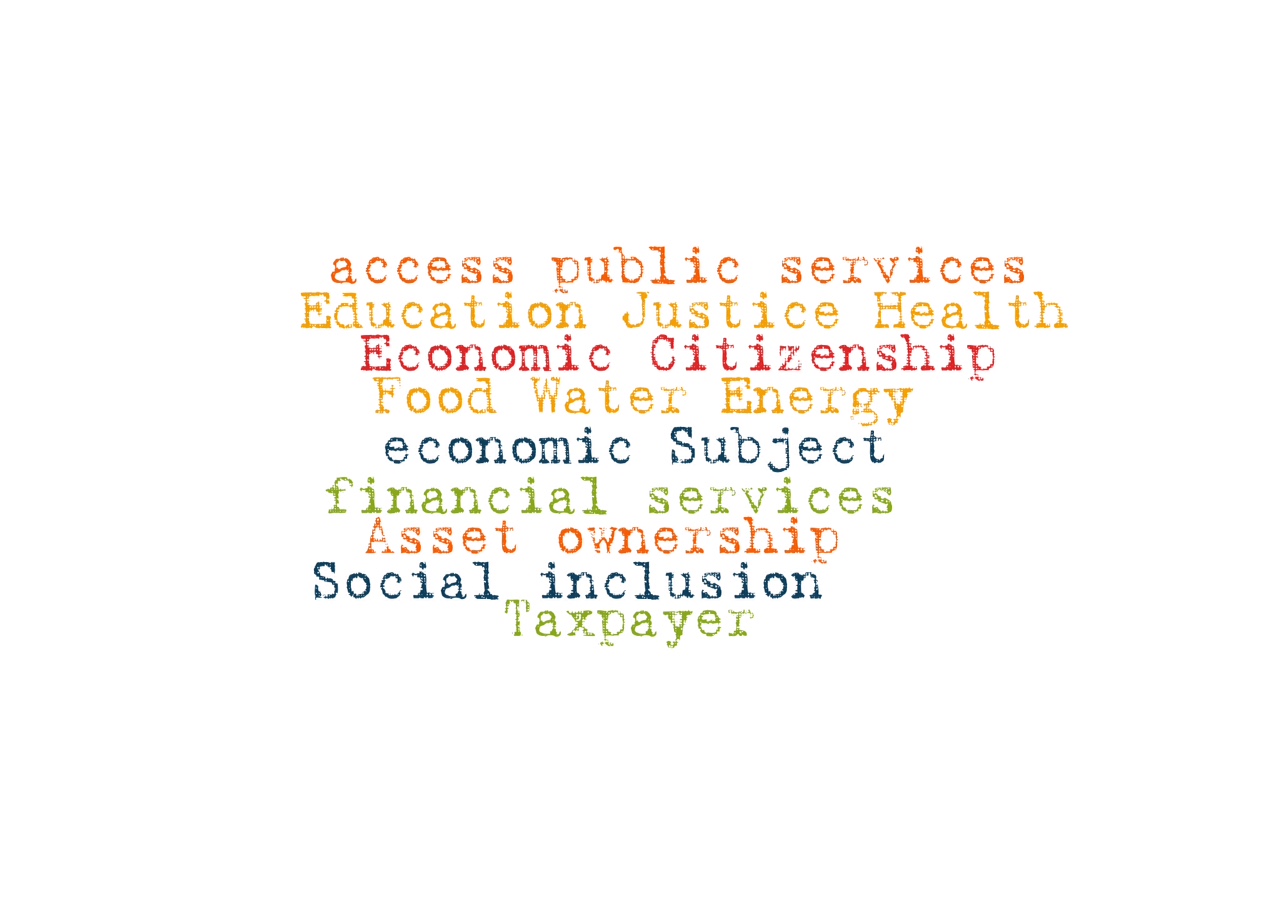
The economic citizen is defined as a socially integrated individual that owns assets, pay taxes and has access to goods and services directly related with her overall wellbeing. The public and private sector are held accountable for the provision of the widely recognised as the common goods that for the economic citizen do include education, justice, energy, food, water, housing, financial services and social inclusion.
It is through the economic citizenship, that every individual with their work and effort, without the paternalistic dependencies of “Daddy State”, can accomplish the opportunity and ability to fully exercise their civic rights, social, political an economical as full citizens, i.e., as free citizens
On the other hand, the axis poverty-inequality-exclusion, give shape to the trident pushing the citizen to feel, with all the logic, as a second class individual that losses her rights and conditions to be and identify herself as an economic citizenship. We may convene that the primary source of this loss of identity, particularly in the advanced economies, can be ascribed mainly to the lack of continued and decently paid jobs.
For this reason, it is that be a second class citizen involves the difficulty, if not the impossibility, to get access to the universal basic services that the economic citizen enjoys, precisely thanks to her quality of such. The small entrepreneur, and not least the housewife with their unpaid work, not valued in economic terms and therefore not included as part of the national gross product (GDP), also do not escape to this bitter feeling.
Thus, the concept of economic citizenship comes here to offer a reflection framework for the formulation of investment and public spending policies, equipped with strategies providing efficient and effective responses with the ultimate objective of eliminating the root causes that generate inequality, poverty and exclusion.
A full economic citizenship entails a fundamental factor to achieve and maintain the rootedness, cohesion and stability, that is, the sense of belonging that every advanced democratic society must secure, stimulate and guard. The economic citizenship in a broadly sense, complements and reinforces the development of the political citizenship. Both set up the democratic citizenship as it is understood by societies governed under comparable principles of democracy.
It is key that the formulation process of public policies address the inclusion and protection of the individual in her economic citizenship character, favouring the ownership and enjoyment of property and rights and making her accountable to the contribution to the state’s obligations. All this should be a political commitment of the highest priority in the configuration of the agendas of public authorities, political parties and the society in general.
However, investing more public resources on the deepening of the economic citizenship in exchange of more taxes should not be the easy formula to choose from. Spending less and more wisely with the requirement of fair, equitable and non-confiscatory taxation, should be the way forward, while at the same time, public authorities do recognise their moral obligation to progress in the development of a full economic citizenship of the XXI century.
To be continued….
![]()
Economic citizenship, a disruptive note by Miguel Sánchez de Pedro is licensed under a Creative Commons Attribution-NoDerivatives 4.0 International License.
Based on a work at https://miguelsdp.wordpres.com.


